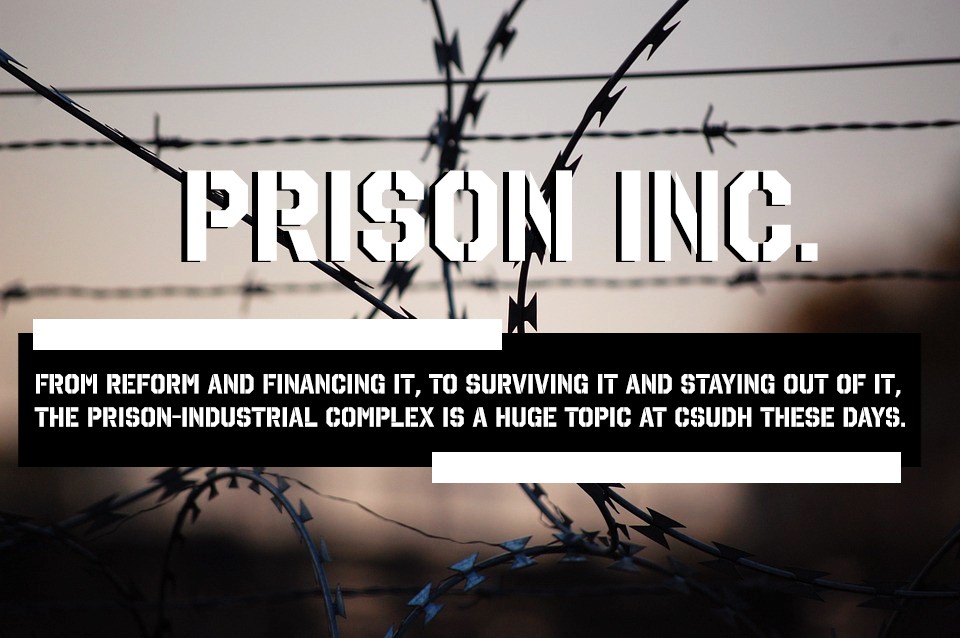By Jordan Darling, Editor-in-Chief
An Introduction to Private Prisons
Private prisons have been in America since San Quentin opened in California in 1852. But their numbers swelled in the 1980s with the Reagan Administration’s “War on Drugs.”
Critics of the private prison system focus their rebuke of the system on the inhumane way that private prisons are run. Opposers say that private prisons offer limited rehabilitation, little to no training for employees and poor medical care for inmates. Supporters of the institutions support the financial gain from the creation of jobs in areas where the prisons are located and the burden that is taken off of state and federal systems from overcrowding.
In 2016 the Obama administration announced a plan to phase out private, for-profit prisons, but the next year the Trump Administration reversed Obama’s decision. Private for-profit prisons played a large part in the Trump Administration’s immigration policies,with those companies branching into immigrant detention centers in border states.
California led the charge against these private detention centers, and the union that represents CSUDH’s instructors, played a large part in it by petitioning a large investment fund to pull its funding from the two largest for-profit prison providers. CFA’s work against was closely followed by a bill signed by the governor that pushes private prisons out of California by 2028.
The Major Players
CalPERS is the largest pension fund in the United States with a reported $3.5 billion in assets and 1.9 million members as of 2018. The pension fund covers the entire CSU system including the 1,600 staff and faculty at CSUDH.
The CFA is the union for CSU faculty which encompasses 28,000 employees throughout the 23 CSU’s.
CoreCivic/GEO Group are the two largest private prison/immigration detention center management companies in the United States. CoreCivic has 77 facilities in the United States with six located in Calif. 27 percent of their contracts are with ICE.
Robert (Rob) Bonta, Assemblymember for the Calif. Legislature, representative of the 18th Assembly District, encompassing the central East Bay of the San Francisco Bay Area.
Dates You Need to Know
Dec. 3, 2018, bill AB 33 was introduced and AB 32 was reintroduced by Assemblymember Rob Bonta. AB 33 would have prohibited California public retirement funds from renewing investments in private for-profit prisons and AB 32 prevents the Department of Corrections and Rehabilitation signing new contracts with private for-profit prisons.
“It’s time we redirect our criminal justice system to value and prioritize effective prison rehabilitation programs, which will help minimize recidivism rates and maximize successes for inmates upon their reentry into society,” Bonta said.The second hearing for AB 33 was canceled by request on the author on April 24, 2019.
April 14, 2019 the California Faculty Association, CFA, adopted a resolution to “actively engage CalPERS” on the matter of investing in private prisons at their 89th assembly. This came after the initial discussion in the fall 2017 assembly.
“There must be a process when there is a standard of living and you are dealing with human life there should not be a profit involved period.” Samila Amanyraoufpoor, Political Action Chair for the CSUDH chapter.
Oct. 11 2019, Governor Gavin Newson signed bill AB 32 into law prohibiting the Department of Corrections and Rehabilitation from signing new contracts with private, for-profit prisons, effectively ending their presence in the state by Jan 1, 2028.
Oct. 21 2019,CalPERS, announced that it would be cutting financial ties and selling its $8.86 million position with two of the largest private, for-profit prison management companies in the United States, CoreCivic and GEO Group.
In Conclusion
California is seeing a large scale divestiture from private for-profit prisons. Financially the state will no longer support the institutions, this is in direct opposition of the Trump administration’s policies regarding immigration detention.
The divestiture is a step forward for humanitarian advocates. “As far as investments that was the first step but on a personal level, we are activists too. Activists are still working against them. As an individual we are still working on the quality of life of inmates.” Amanyraoufpoor said. California is the first state to divest fully.

